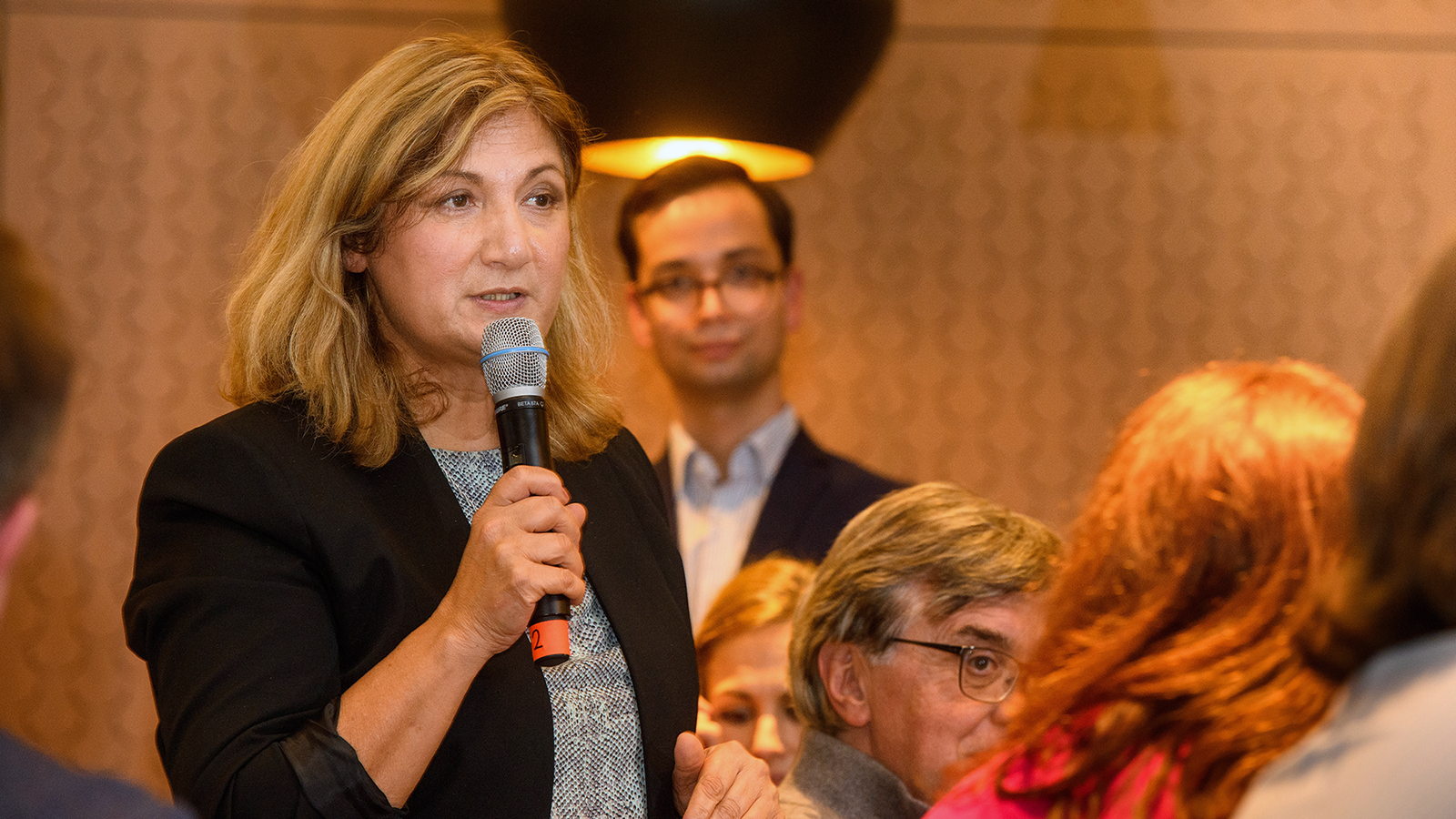Rethinking the world
How can we bring the worlds of arts and activism together? What could be efficient proposals for retooling the United Nations? And what are missed opportunities in democratizing former post-Sowjet states? During their residency at the Robert Bosch Academy in Berlin, the Richard von Weizsäcker Fellows work on answers to these and other questions of our time.
“Humanity has entered the most consequential decade of all time. What we do in the next ten years will determine the future of our children and grandchildren – or if they will have a future at all”, says Kumi Naidoo. For the former General Secretary of Amnesty International it is now time to set the course for the future.
For that reason Kumi Naidoo has traveled to Germany alongside other international decision-makers, opinion leaders, and experts. He is one of this year's Richard von Weizsäcker fellows spending a residency of several months at the Robert Bosch Academy in Berlin. During that time the fellows can pursue their individual research beyond their usual professional commitments.
In 2022 their projects range from how to finance the non-profit sector to the relationship between art and activism to exploring the missed opportunities in the relations between the West and former post-Soviet states and understanding how the German nation dealt with the heritage of the Nazi regime and what we can learn from this experience when it comes to building a society built on values like equal citizenship. In the following video statements the fellows introduce themselves and their work.
Kumi Naidoo, South Africa: How can activism win faster and bigger?
Kumi Naidoo is a human rights and environmental activist from South Africa. He served as Secretary General of Amnesty International from 2018 to 2020. During his fellowship he wants to reflect on why activism is failing as well as how we can bring the worlds of arts and culture and activism together.
Leila Alieva, Azerbaijan: What are missed opportunities in democratizing former post-Sowjet states?
Leila Alieva from Azerbaijan is an affiliate of Russian and East European Studies at University of Oxford’s School of Global and Area Studies. As an expert on the former Soviet Union, European Union and Euro-Atlantic integration, she has been a frequent speaker at international symposia and conferences, including ministerial meetings of the EU and sessions of the European Parliament.
The crises of our time require multilateral solutions and concerted global action.
María Fernanda Espinosa, Ecuador: What are future scenarios for multilateralism?
As a diplomat, politician, and academic from Ecuador, María Fernanda Espinosa has more than 30 years of experience in international organizations, the Ecuadorian government, NGOs and academia. During her fellowship she will work on future scenarios on multilateralism.
Erin Ganju, USA: How can international development movements get better funding?
US-citizen Erin Ganju is a social entrepreneur and managing director at Echidna Giving, one of the largest private funders in girls’ education in lower-income countries. She leads on managing their portfolio of global investments in adolescent programming and efforts to build a robust ecosystem among implementers, researchers, and other funders in the gender equality in education sector.
We need philanthropy to rise to the global challenges and be able to be a constructive supportive partner to the nonprofit sector.
Harsh Mander, India: How can we overcome hate crimes and create a society built on equal citizenship?
Harsh Mander is a human rights and peace activist, writer, and lecturer. He is Director of the Centre for Equity Studies in India, a research center focused on social and economic justice. Previously, he worked on the highest level in the Indian Administrative Service in Madhya Pradesh and Chattisgarh for almost two decades. In 2002, he retired in protest against the role of the state in the massacre in Gujarat. During his fellowship he will try to understand how the German society dealt with its troubled past of the Nazi regime and how it rebuilt a society based on values like equal cizitenship.
The Robert Bosch Academy
Find out moreThe Robert Bosch Academy is an institution of the Robert Bosch Stiftung located in Berlin. It offers international decision-makers, opinion leaders, and experts the opportunity for confidential exchanges and solution-oriented cooperation on issues of global relevance.

